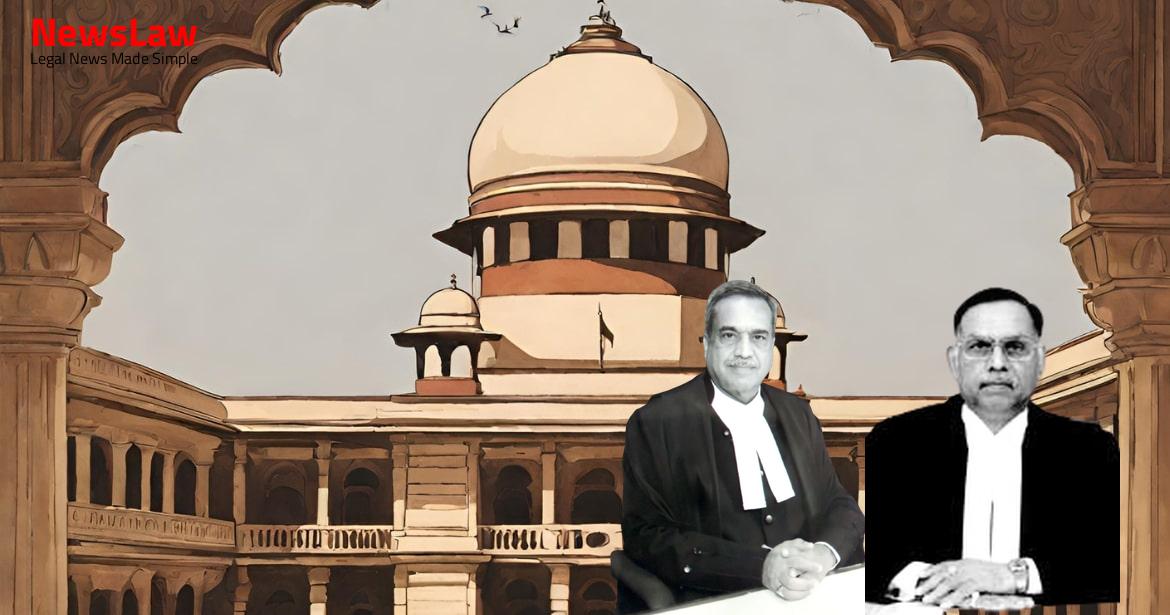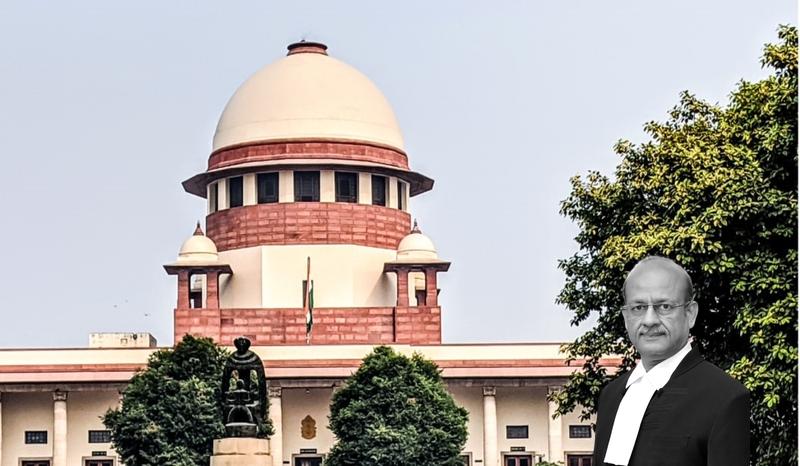Exploring the recent Supreme Court judgement on land acquisition proceedings and the application of Section 24(2) of the 2013 Act. The case involves challenges faced by subsequent purchasers, assignees, and power-of-attorney holders in seeking declarations of lapse. Stay informed about the implications of this significant ruling in the legal landscape.
Facts
- Notification issued for acquisition of land in Village Pansali for Rohini Residential Scheme under planned development of Delhi.
- Possession of the land taken on 12.5.2000.
- Unauthorized colony named Deep Vihar, Pansali, Pooth Kalan, Delhi came up during the acquisition process.
- Government of NCT of Delhi provisionally regularized the unauthorized colony.
- Purchasers participated in compensation determination proceedings under sections 9 and 10 of the 1894 Act.
- Issue of whether purchasers can invoke section 24 of the Act of 2013 post-acquisition notification raised in the matter.
- The Division Bench of the High Court dismissed the writ application filed by RLC.
- The decision was made after considering the arguments presented by both parties.
- The specific reasons for the dismissal were not provided in the query.
Also Read: Urs Family Property Dispute: Supreme Court Decree
Arguments
- The proceedings for taking possession under the Act of 1894 have been deemed illusory, as possession continues with the appellants, casting doubt on seeking relief under section 24.
- The purchasers who acquired no right cannot question the land acquisition or invoke section 24 of the Act of 2013.
- The decision in Government (NCT of Delhi) v. Manav Dharam Trust & Anr. (2017) 6 SCC 751 is considered contrary to numerous past decisions where sales post-issuance of notification under section 4 were deemed void.
- A reference was made to the decision in Vineeta Sharma v. Rakesh Sharma (2019) 6 SCC 162 due to conflicting interpretations of section 6 of the Hindu Succession Act, 1956.
- The High Court’s dismissal of the writ application on the grounds of the property being a part of an unauthorized colony was considered erroneous by the petitioners.
- The challenge in this case is not to the acquisition proceedings, but to seek a declaration that the acquisition proceedings have lapsed due to Section 24(2) of the 2013 Act.
- The ratio of cases decided under the 1894 Act does not apply due to the operation of Section 24(2) of the 2013 Act.
- Subsequent purchasers, assignees, successors in interest, power-of-attorney holders are all entitled to seek a declaration of the lapse of acquisition under the 2013 Act.
- The subsequent purchasers are affected by the acquisition and are entitled to claim compensation as interested persons under the 2013 Act.
- The case referred to in Manav Dharam Trust highlighted that subsequent purchasers are indeed affected by the acquisition.
Also Read: Supreme Court Ruling on Exemption of Excise Duties and Cess
Analysis
- The judgment discusses the legal position regarding purchases made after the issuance of a preliminary notification.
- Transactions made post the section 4 notification are considered void and cannot be used as a basis for mutations in records.
- Provisions of the Act of 2013 intend to benefit landowners specified in the section 4 notification, not post-notification purchasers.
- Transactions like GPA sales, SA/GPA/WILL transfers are deemed invalid modes of transfer of immovable property.
- A power of attorney does not confer ownership or interest in immovable property and is revocable.
- Purchasers post section 4 notification cannot challenge the acquisition proceedings or seek declarations under Section 24.
- The judgment emphasizes the binding value of larger bench decisions and consistent court rulings.
- A will is revocable during the testator’s lifetime and becomes effective only after the testator’s death.
- Possession taken under Section 17 vests the land in the State unless revoked under specified conditions.
- The enactment of the Act of 2013 does not validate void transactions like post-section 4 purchases.
- Provisions under Section 24 do not apply to purchasers with no title in the acquired land post notification.
- The proviso to Section 24(2) clarifies compensation entitlement to recorded landowners at the time of acquisition notification.
- Unauthorized re-entry into possession does not confer any legal rights.
- Transactions after section 4 notifications are not eligible for higher compensation as provided under the Act of 2013.
- Sale of land after issuance of a Section 4 notification is void, and the purchaser cannot challenge the acquisition proceedings.
- A person who purchases land after the publication of a Section 4 notification cannot challenge the validity of the acquisition proceedings.
- Transactions based on power of attorneys, agreements, etc., are not entitled to invoke provisions of Section 24(2) of the 2013 Act.
- A power of attorney does not transfer title to the grantee and does not confer any title to the property.
- Any land acquisition proceedings initiated under the Land Acquisition Act, 1894, where an award has been made but physical possession has not been taken, shall be deemed to have lapsed under the new Act.
- No transactions or encumbrances can be made on land specified in the preliminary notification until proceedings are completed.
- Collector may exempt landowners from the restriction in special circumstances.
- Loss or injury due to willful violation of transaction restriction will not be compensated by the Collector.
- Definition of ‘landowner’ includes the person recorded as the owner of the land or building.
- Purchasers post award under section 11 cannot be considered landowners under section 3(r).
- Definition of ‘person interested’ includes those claiming compensation, forest rights holders, easement holders, tenant rights holders, and persons whose livelihood is affected.
- A rehabilitation and resettlement scheme must be prepared under Section 16.
- Definition of ‘affected family’ includes families whose land is acquired, those without land but with livelihood affected, forest rights holders, those with livelihood dependent on forests/water bodies, those assigned land under government schemes, and those affected by urban land acquisition.
- Om Prakash sold 1/2 share to Satya Narain on 11.3.1984.
- Purchase from owners with imperfect title did not confer derivative title in the eye of the law.
- No legally recognized title deed in favor of Satya Narain.
- Purchase through Agreement to Sale, Power of Attorney, or Will did not confer a valid title.
- The purchase made after Section 4 was void.
Also Read: Telecom Operators vs. Union of India: Landmark Judgment on Gross Revenue Definition
Decision
- The appeal has been dismissed.
- No interference is required in the judgment and order passed by the High Court.
Case Title: SHIVKUMAR Vs. UNION OF INDIA
Case Number: C.A. No.-008003-008003 / 2019



